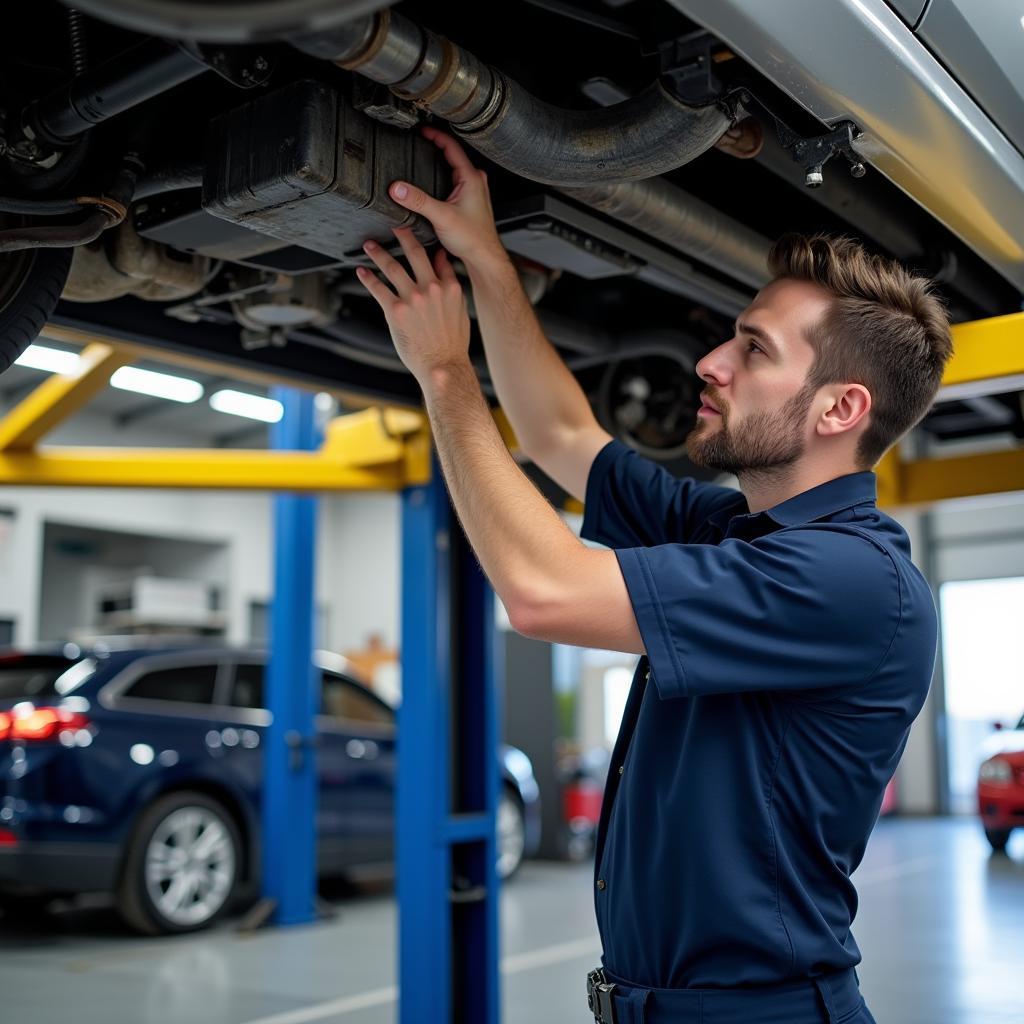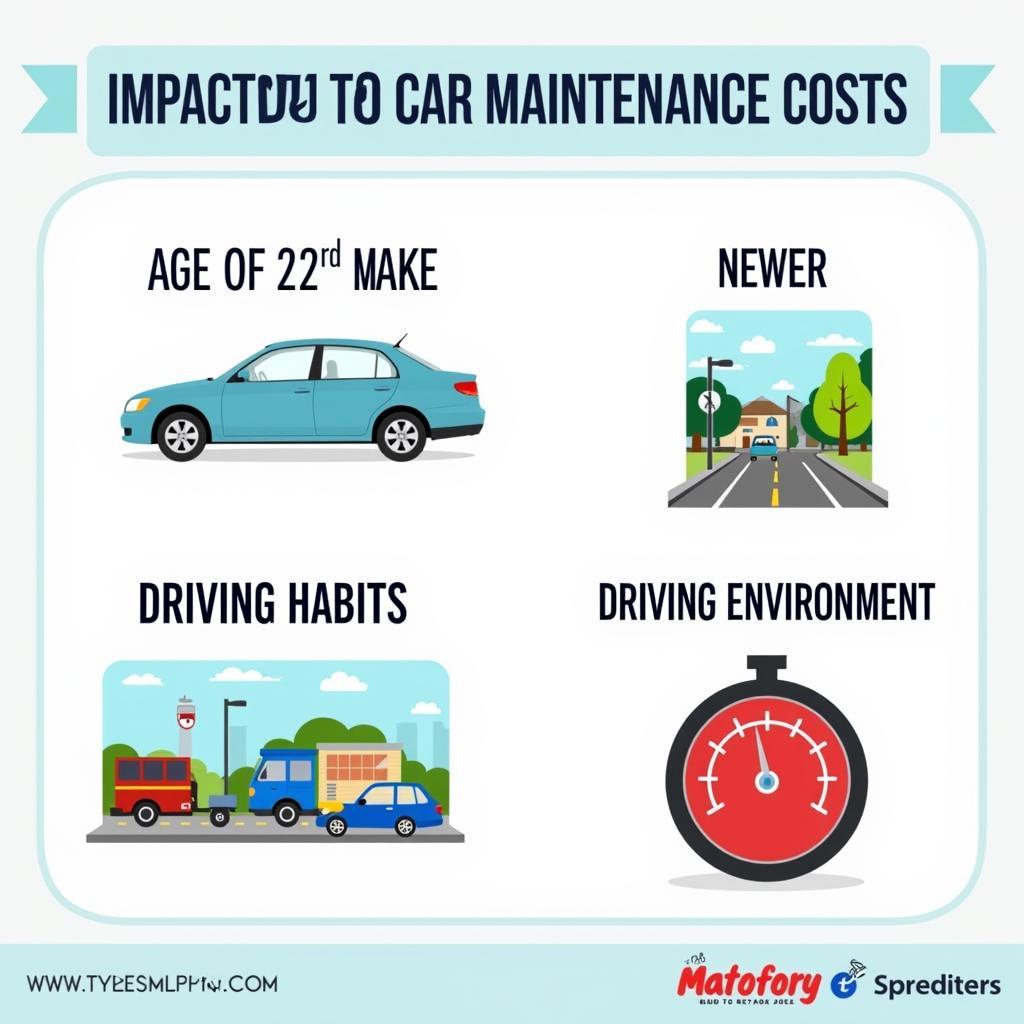Car maintenance and repairs are an inevitable part of vehicle ownership. Whether you’re a seasoned mechanic or a car novice, understanding the basics of “Car Garage Fixing” can save you time, money, and unnecessary headaches. This comprehensive guide will equip you with the knowledge to tackle common car problems, navigate the intricacies of car repair shops, and make informed decisions about your vehicle’s well-being.
Did you know that regular car maintenance can significantly extend the lifespan of your vehicle? Fixing one car garage is becoming increasingly popular. By adhering to a preventative maintenance schedule, you can identify potential issues before they escalate into costly repairs.
Understanding Common Car Problems
Before delving into the world of car garages, it’s crucial to familiarize yourself with common car problems. Recognizing the warning signs can help you address issues promptly and prevent further damage.
Engine Trouble
The engine, being the heart of your car, can experience various issues such as:
- Overheating: Indicated by a temperature gauge reading high or steam emanating from under the hood.
- Strange Noises: Unusual knocking, ticking, or grinding sounds could signal problems with belts, bearings, or internal components.
- Warning Lights: The check engine light illuminating on your dashboard warrants immediate attention from a qualified mechanic.
Brake System Malfunctions
A malfunctioning brake system poses serious safety risks. Be vigilant for:
- Spongy Brake Pedal: If the brake pedal feels soft or sinks to the floor, it’s crucial to have your brake fluid levels checked and the system inspected for leaks.
- Squealing or Grinding Brakes: High-pitched squealing or grinding noises when applying brakes often indicate worn brake pads or rotors.
- Pulling to One Side: If your car veers to one side while braking, it could point towards uneven brake pad wear or a problem with the hydraulic system.
Electrical System Glitches
Modern cars heavily rely on complex electrical systems. Common electrical issues include:
- Battery Problems: A dead battery, slow engine cranking, or dim headlights might suggest a failing battery.
- Faulty Alternator: The alternator charges the battery while the engine is running. A faulty alternator can lead to a drained battery and other electrical issues.
- Wiring Issues: Loose or damaged wiring can disrupt the flow of electricity, causing various electrical components to malfunction.
Choosing the Right Car Garage
Finding a trustworthy and reliable car garage is crucial for ensuring quality repairs and peace of mind.
Ask for Recommendations
Word-of-mouth referrals from friends, family, or colleagues can provide valuable insights into the reputation and reliability of local car garages.
Check Online Reviews
Online platforms like Google My Business, Yelp, and automotive forums host a wealth of customer reviews. Reading through these reviews can offer insights into the experiences of previous customers.
Verify Certifications and Licenses
Ensure the car garage you choose employs certified mechanics with the necessary expertise to work on your vehicle.
 Mechanic Inspecting a Car
Mechanic Inspecting a Car
Tips for Interacting with Mechanics
Effective communication with your mechanic is key to ensuring accurate diagnoses and repairs.
Clearly Describe the Problem
Provide a detailed description of the symptoms you’re experiencing, including when they occur, any unusual sounds or smells, and any warning lights on your dashboard.
Ask for Explanations
Don’t hesitate to ask your mechanic to clarify any technical terms or procedures you don’t understand. A good mechanic will be happy to explain things in a way that you can comprehend.
Get Multiple Quotes
If you’re facing major repairs, it’s wise to obtain multiple quotes from different car garages to compare prices and services offered.
DIY Car Maintenance Tips
While some car repairs necessitate professional expertise, several maintenance tasks can be performed at home, saving you money and empowering you as a car owner.
Checking and Changing Fluids
Regularly check and change essential fluids like engine oil, coolant, brake fluid, and transmission fluid. Refer to your owner’s manual for recommended intervals and procedures.
Replacing Air Filters
A clogged air filter can restrict airflow to the engine, impacting performance and fuel efficiency. Replacing the air filter is a relatively simple task that can be done at home with basic tools.
Inspecting and Inflating Tires
Maintaining proper tire pressure is crucial for safety and fuel economy. Use a tire pressure gauge to check tire pressure regularly and inflate or deflate as needed.
Conclusion
Navigating the world of “car garage fixing” can seem daunting, but armed with the right knowledge and resources, you can approach car maintenance and repairs with confidence. Remember to prioritize preventative maintenance, choose a trustworthy car garage, communicate effectively with mechanics, and don’t shy away from tackling DIY tasks within your comfort level. For expert advice and assistance, reach out to AutoTipPro at +1 (641) 206-8880 or visit our office at 500 N St Mary’s St, San Antonio, TX 78205, United States.





Leave a Reply